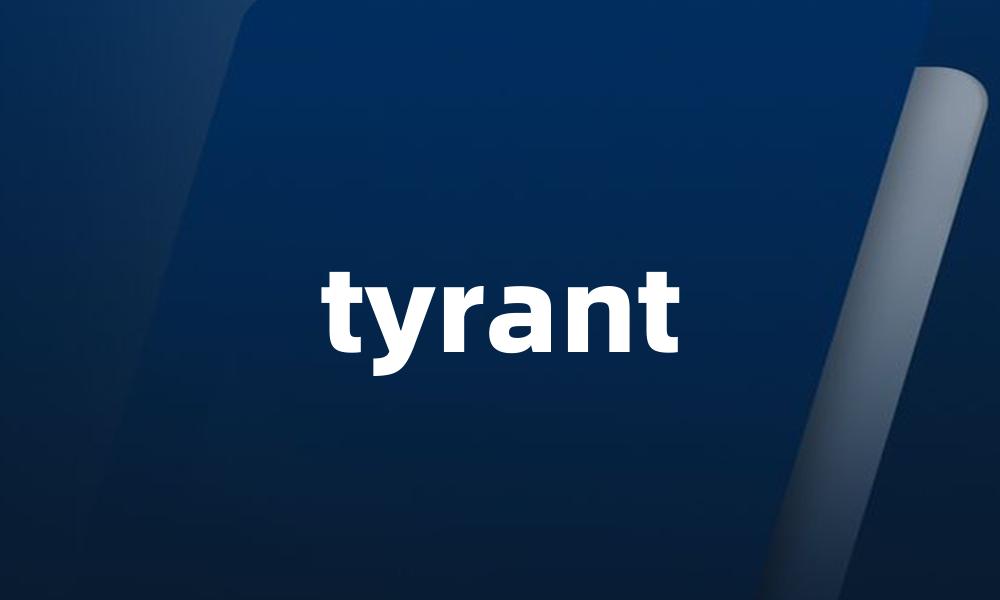
词汇分析:tyrant
基本信息
tyrant 是一个名词,意指“暴君”或“专制统治者”。在现代英语中,该词通常用于形容滥用权力的人,特别是在政治或社会权力方面。
词语辨析
虽然“tyrant”主要作为名词使用,但在某些情况下,它可以用作形容词,尤其是在口语中形容某人或某种行为的专制性质。例如,"tyrannical rule"(暴虐的统治)。
近义词
- dictator(独裁者)
- oppressor(压迫者)
- despot(专制者)
反义词
- liberator(解放者)
- democrat(民主者)
- philanthropist(慈善家)
词汇扩充
相关词汇包括:
- tyranny(暴政)
- tyrannical(暴虐的)
- tyrannize(压迫)
用法
在句子中,“tyrant”通常用于描述政治或社会中的专制统治者,也可以用于比喻某种压迫性行为或态度。
例句
-
The **tyrant** ruled the country with an iron fist.
这位暴君用铁腕统治着国家。
-
People often fear a **tyrant** more than they fear war.
人们往往比起战争,更害怕暴君。
-
A **tyrant** does not listen to the cries of his people.
一个暴君不会倾听人民的呼声。
-
His **tyrannical** behavior made him unpopular among his colleagues.
他的暴虐行为使他在同事中不受欢迎。
-
The **tyrant** was eventually overthrown by a revolution.
这位暴君最终被一场革命推翻。
-
Children sometimes feel their parents are **tyrants**.
孩子们有时觉得他们的父母是暴君。
-
Many dictators are seen as **tyrants** in history.
许多独裁者在历史上被视为暴君。
-
Her **tyrannical** management style drove away talented employees.
她的专制管理风格使得优秀员工纷纷离职。
-
The **tyrant** oppressed the people for decades.
这位暴君压迫人民几十年。
-
Many stories depict the downfall of a **tyrant**.
许多故事描绘了一个暴君的覆灭。
-
His **tyranny** was marked by fear and violence.
他的暴政以恐惧和暴力为特征。
-
A **tyrant** often justifies his actions with false promises.
一个暴君常常用虚假的承诺为自己的行为辩护。
-
Some politicians can act like **tyrants** when they gain power.
一些政治家在获得权力后会表现得像暴君。
-
He was known as a **tyrant** in his community.
他在社区中被称为暴君。
-
To live under a **tyrant** is to suffer daily oppression.
生活在暴君统治下意味着每天都在受苦。
-
The **tyrant's** reign came to an end after years of suffering.
经过多年的苦难,这位暴君的统治终于结束。
-
People often rebel against a **tyrant**.
人们常常反抗暴君。
-
The **tyrant** imposed harsh laws on the citizens.
这位暴君对公民实施了严苛的法律。
-
His **tyrannical** approach to leadership created a toxic environment.
他专制的领导方式造成了一个有毒的环境。
-
Under the **tyrant**, freedom was a distant memory.
在这位暴君的统治下,自由成了遥远的记忆。

 小皮
小皮